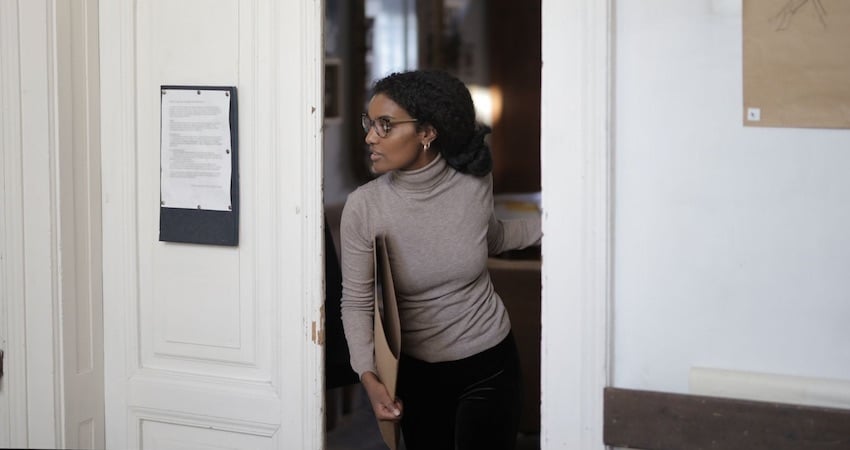Pharmacy School Letter of Recommendation Tips
Letters of recommendation are a necessary component if you want to be admitted to pharmacy school. You will be required to have at least two letters of recommendation submitted to accompany your application, and some schools will ask for more than two. These letters are weighted heavily by pharmacy schools as they consider applicants to fill a limited number of slots. Keep reading for our best tips and advice on how to get the best possible letters of recommendation for your pharmacy school application.
What do pharmacy schools look for in letters of recommendation?
Evaluators at pharmacy schools will select applicants based on their record of professionalism, work ethic, networking abilities and personal character.
Evaluators at pharmacy schools will select applicants based on their record of professionalism, work ethic, networking abilities and personal character. They want to see letters of recommendation from professionals who have worked closely with you over an extensive period of time and who know you well.
Pharmacy school is rigorous and therefore most programs screen applicants to determine whether they are likely to succeed. They do not want to accept applicants who are likely to drop out of the program. Your letters of recommendation from professional mentors are what really tells the evaluators that you are a person who has the drive and temperament to get through a tough professional program.
How many letters of recommendation do you need for pharmacy school?
Most pharmacy schools will ask for a minimum of two letters of recommendation - one from a science professor in your Pre-Pharmacy program and one from an actual pharmacist. Some programs will also give you the option to send more. If that's the case, you should definitely take advantage of having an optional letter of recommendation sent. An optional letter can be sent from a supervisor at a job or volunteer program, so long as that person has worked closely with you for an extended period of time.
Tip: Consider asking for more letters of recommendation than you will actually need.
Tip: Consider asking for more letters of recommendation than you will actually need. Remember, professors are people, too -- busy people. It's not unusual for professors in larger schools to be asked for a couple of dozen letters of recommendation during a semester. If you only ask one professor for a letter of recommendation and then something unexpected comes up for them, they might not have enough time to complete your letter. This could leave you scrambling at the last minute, trying to find someone else. If you have back-up letter writers in place, this won’t become a huge issue for you.
Also keep in mind that even though pharmacy schools may only accept a certain number of recommendation letters, you can still ask for more.
Who you want to ask for a letter of recommendation
At a minimum, you will want to ask for letters of recommendation from a pharmacist and a science professor from your Pre-Pharmacy program, and both individuals should know you well. For example, if you sat in a professor's class for one semester and he does not remember your name, that wouldn't be a good choice for a letter of recommendation. But if you volunteered as a lab assistant for a year and worked closely with a professor, that one would be a good choice.
The following sorts of professionals are the ones you should be fostering relationships with over time in order to get a great recommendation from them:
- Science, anatomy or physiology professors
- A pharmacist you've worked under or shadowed frequently
- A boss from a current or former job
- School advisor who is familiar with your career goals
- A volunteer supervisor
Pharmacy schools will want letters of recommendation from established professionals who can speak about your work ethic, interest in pharmacy, time management, professionalism, intellectual curiosity and personal character. If you sat in a professor's class but never asked questions, they cannot really speak to who you are or why you would be a qualified candidate for pharmacy school.
Tip: Proactively foster relationships with professors and/or a pharmacist, with the knowledge and expectation that you will eventually be asking them for a letter of recommendation.
Tip: Proactively foster relationships with professors and/or a pharmacist, with the knowledge and expectation that you will eventually be asking them for a letter of recommendation. Attend office hours, and student-faculty get-togethers where you can meet professors outside of class so they get to know you. Apply for a position as a research assistant if an opening comes up, and really dedicate yourself to that job if you get it. The best letters of recommendation for pharmacy school will come from professionals who you have developed close working relationships with - and that takes real time, dedication and effort!
How do you ask for a letter of recommendation?
If you have diligently worked to foster relationships with your professors and a pharmacist, they may actually be expecting you to ask them for a letter of recommendation to pharmacy school. When you formally ask them to write you a letter, you should provide them enough lead time to complete it (remember, these are busy professionals). Three months before the pharmacy school's submission deadline is a good benchmark to ask for a letter of recommendation.
Don't make your letter writers do any extra work! You should provide all of the following to your letter writers, so that they can simply focus on writing the letter and submitting it to your desired pharmacy school:
- The name of the pharmacy school program(s) you are applying to
- The name of any specific individual(s) who the letter of recommendation should be addressed to
- A copy of your resume
- A short written statement of your professional goals
- A list of projects you worked on with this person (don't assume that they will remember everything)
- A stamp and an envelope with the pharmacy school's address pre-written
Remember to thank the person for writing a letter of recommendation for you. Don't just tell them in person; send them a written Thank-You note or letter, because they have taken time out of their schedule to do you a considerable favor! It's okay to follow up with a reminder as it gets close to the deadline. Sometimes busy professionals can forget that they were supposed to write a letter for you, and a friendly reminder will get them back on track (just don't bombard them with texts, emails or phone calls).
Tip: You should absolutely waive your right to see your letters of recommendation before they are sent to pharmacy schools.
Tip: You should absolutely waive your right to see your letters of recommendation before they are sent to pharmacy schools. This allows your letter writers to be as open and honest about your qualifications as they deserve to be. It also lets the pharmacy program evaluators know that you have not tampered with or altered the letters in any way before they receive them. Waiving your right to see letters of recommendation speaks to your honesty and integrity as an applicant.
Pharmacy School Letter of Recommendation Requirements by State
- AL Alabama
- AK Alaska
- AZ Arizona
- AR Arkansas
- CA California
- CO Colorado
- CT Connecticut
- DE Delaware
- FL Florida
- GA Georgia
- HI Hawaii
- ID Idaho
- IL Illinois
- IN Indiana
- IA Iowa
- KS Kansas
- KY Kentucky
- LA Louisiana
- ME Maine
- MD Maryland
- MA Massachusetts
- MI Michigan
- MN Minnesota
- MS Mississippi
- MO Missouri
- MT Montana
- NE Nebraska
- NV Nevada
- NH New Hampshire
- NJ New Jersey
- NM New Mexico
- NY New York
- NC North Carolina
- ND North Dakota
- OH Ohio
- OK Oklahoma
- OR Oregon
- PA Pennsylvania
- RI Rhode Island
- SC South Carolina
- SD South Dakota
- TN Tennessee
- TX Texas
- UT Utah
- VT Vermont
- VA Virginia
- WA Washington
- DC Washington, DC
- WV West Virginia
- WI Wisconsin
- WY Wyoming

Can you submit your application without recommendation letters?
It is highly unlikely that you will be admitted into a pharmacy program without any letters of recommendation. But to be clear, you can submit your application by itself, so long as your letters of recommendation are submitted to the program separately by your letter writers before the deadline. Many pharmacy schools now accept online applications, rather than traditional paper applications. In those situations, you may need to provide your letter writers with instructions including logins and processes for submitting their letters of recommendation online.




